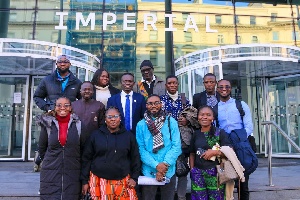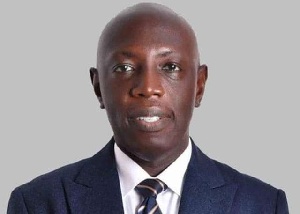Diasporia News of Friday, 28 March 2025
Source: www.ghanawebbers.com
10 Ghanaian journalists receive training on ST&I reporting at Imperial College in London
Ten journalists from Ghana recently trained in London. They focused on Science, Technology, and Innovation (ST&I) reporting at Imperial College.
This training was sponsored by the British High Commission in Accra. It is part of the 2023 UK-Ghana ST&I Strategy. The program lasted three days.
The initiative partnered with the Responsible Artificial Intelligence Lab (RAIL) at KNUST. It also involved the Ministry of Environment, Science and Technology (MEST).
The goal is to help local media translate complex ST&I topics into accessible stories. Journalists included Anass Sabit and Emmanuel Bright Quaicoe from The Multimedia Group.
They won a competitive science media pitch during a workshop in Accra. Their success led to this opportunity for advanced training at a top European university.
During their time at Imperial College, they accessed cutting-edge research facilities. They learned from expert faculty members, including President Professor Hugh Brady.
The journalists aimed to gain insights into global science communication trends. They sought innovative research opportunities to improve ST&I reporting in Ghana.
Professor Brady emphasized the importance of ST&I for decision-making in Ghana. He noted that universities can drive economic growth through partnerships.
He stated that collaborations would address challenges like pandemic preparedness and food security. The Imperial Global Ghana hub will connect innovation ecosystems for better idea flow.
Brady also discussed artificial intelligence's potential to democratize research in Ghana. He mentioned that around 1,000 researchers at Imperial focus on AI projects.
Dr. Leon Barron highlighted ongoing clean air monitoring research in Ghana. This work aims for sustainable solutions to environmental issues.
A workshop led by Dr. Stephen Webster and Ehsan Masood sparked discussions on science journalism's role in Ghana. They explored cultural differences and best practices in science communication from a UK perspective.
Throughout the training, journalists participated in interactive workshops and practical sessions. They visited Polymateria Laboratory, which develops biodegradable technology for harmful plastics.
A networking session with Ghanaian postgraduate students allowed idea exchanges on advancing science and technology in Africa.
The journalists also toured the Science Media Centre, an independent press office for science news globally. This center helps journalists access scientific knowledge while bridging gaps between scientists and media professionals.
With their new skills, these journalists are expected to share compelling narratives about how ST&I can shape Ghana’s future development.











